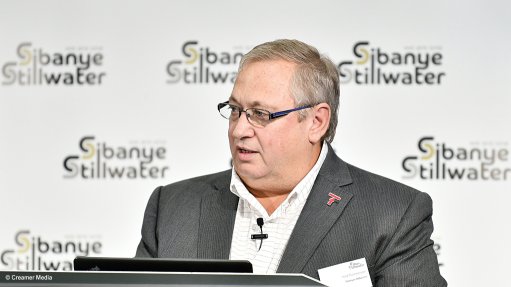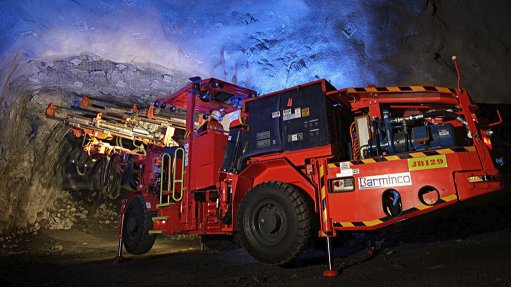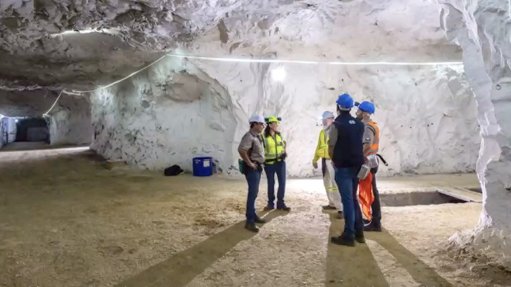Soft skills critical to leading in heterogeneous business world
Technology, connectivity, data and creativity have allowed the development of a range of new capabilities in all industries and improvements in industrial and business processes to the point where individuals and collectives, such as businesses, can have a potentially significant impact on their peers, partners and society.
Such developments have allowed for the use of data science to automate many manual and mundane processes and allow workers and leaders to focus on the most important aspects of their work and the business.
Leading companies and organisations in this environment, now more than ever, requires that leaders have a good understanding of the human-behaviour, -relations and -interactivity aspects of work and life to most effectively direct heterogeneous and often physically dispersed teams while enabling these teams to be agile to meet the new demands on the business, says exponential leadership firm Cycan founder Bryan Hattingh.
The exponential world has been predicted, but the pace and scale of its development have repeatedly been underestimated. Simultaneously, with the Covid-19 crisis, the primacy of family and community have been highlighted and this has led to a much-desired increase in consciousness and understanding of these elements of work and life by companies.
“Agility in teams requires that managers are also agile, visionary and focus on the most important elements of the project and the business. The changing world requires that we as individuals be adaptable and agile and we need to be able to unlearn certain skills and ways of working to be able to gain new insights and develop new perspectives rapidly to adapt to and adopt new ways of working.”
This adaptability is necessary as what developed and sustained the business will not be sufficient to ensure its sustained relevance and ability to meet new demands from clients and partners.
Science, technology, engineering and mathematical skills are the order of the day in the new digital world, with most students and people focused on developing these skills, but there remains a core need for communication skills, creativity and adaptability to facilitate and enable the new ways of working that rely on constant communication and orchestration.
“People are not naturally agile because, from a neurology perspective, we are twice as likely to avoid risks than to pursue progress. Comfort and complacency are inhibitors as they lead to us not being on guard and alive to the issues, processes and emergent risks. This is partly why ensuring diversity in teams and businesses is an aide in ensuring that we do not fall into routine and are able to recognise the needs and change roles rapidly,” says Hattingh.
In the professional world, roles and careers are constantly and often rapidly changing, and agility reduces an organisation’s vulnerability to disruption. However, quickly changing teams and processes, especially in diverse and large organisations, requires effective collaboration.
A leader can support collaboration in a business by being self-aware of their approaches to leadership.
“It is the approach to leadership that inculcates and supports the culture of all employees in a business, for example by understanding the dynamics of teams and using these to support collaboration and innovation necessary to further the company,” says Hattingh.
Establishing management strategies to support innovation and collaboration requires a recognition about the impact the business and employees have on their industry, society and the world, and the importance of connecting and collaborating with stakeholders in the value chain. These connections and links enable a company to have more visibility and control over their operating environment, as well as the ability to influence practices in their partners.
Changing behaviour is not easy, and requires that people step out of their comfort zone, but being challenged also drives people, and therefore teams and companies, to engage with their work and to innovate to overcome problems. However, being engaged with work also contributes to a sense of purposefulness of the person, which is a keen motivator and changes the approach to work from one of routine to one of constant and dynamic engagement.
Hattingh gives an example of a financial professional who was placed in charge of a team of 18 people. The professional was promoted owing to diligent, value-adding work, and the company wanted to leverage his skills to improve and/or expand its services.
However, the same method of working that had allowed the professional to excel and be promoted was ineffective in managing a team. The leader expected all the work to be performed to the same exacting standards that had supported the professional’s promotion, but most workers are unable to meet these standards.
This led to the leader struggling to meet targets, as work processes were delayed owing to an extreme focus only on the metrics of the work, rather than the role of the team in the business and the value chain.
“If the leader is struggling to lead 18 people, then there is little chance of this person leading a department of 100 people without embarking on meaningful change in approach and behaviour. However, the barrier turned out to be the leader’s working practices and behaviour. Once the person recognised this and placed greater trust and agency in his workers, and effectively led the team rather than trying to manage every aspect of the process, his workers started to perform more effectively.”
Similarly, professionals must recognise the importance of evolving professionally to more effectively meet the demands of new roles and positions, which require changes in skills and behaviour. The ability to adapt to new roles and demands is ever more important as careers, sectors and even whole industries change.
Additionally, effective leadership and engagement can change business culture and impact on culture of the broader value chain. Hattingh gives an example of an engineering firm, that consulted with Cycan, reporting that not only had the changes in leadership approach improved their operations, but had also led to different reactions from unions, owing to the change in engagement and culture of the organisation.
Transformation leaders take an engaging and coaching approach to leadership, which emphasises thinking beyond only the leader’s immediate area of operations and remaining optimally effective and reflective to identify and capitalise on new opportunities, concludes Hattingh.
Comments
Press Office
Announcements
What's On
Subscribe to improve your user experience...
Option 1 (equivalent of R125 a month):
Receive a weekly copy of Creamer Media's Engineering News & Mining Weekly magazine
(print copy for those in South Africa and e-magazine for those outside of South Africa)
Receive daily email newsletters
Access to full search results
Access archive of magazine back copies
Access to Projects in Progress
Access to ONE Research Report of your choice in PDF format
Option 2 (equivalent of R375 a month):
All benefits from Option 1
PLUS
Access to Creamer Media's Research Channel Africa for ALL Research Reports, in PDF format, on various industrial and mining sectors
including Electricity; Water; Energy Transition; Hydrogen; Roads, Rail and Ports; Coal; Gold; Platinum; Battery Metals; etc.
Already a subscriber?
Forgotten your password?
Receive weekly copy of Creamer Media's Engineering News & Mining Weekly magazine (print copy for those in South Africa and e-magazine for those outside of South Africa)
➕
Recieve daily email newsletters
➕
Access to full search results
➕
Access archive of magazine back copies
➕
Access to Projects in Progress
➕
Access to ONE Research Report of your choice in PDF format
RESEARCH CHANNEL AFRICA
R4500 (equivalent of R375 a month)
SUBSCRIBEAll benefits from Option 1
➕
Access to Creamer Media's Research Channel Africa for ALL Research Reports on various industrial and mining sectors, in PDF format, including on:
Electricity
➕
Water
➕
Energy Transition
➕
Hydrogen
➕
Roads, Rail and Ports
➕
Coal
➕
Gold
➕
Platinum
➕
Battery Metals
➕
etc.
Receive all benefits from Option 1 or Option 2 delivered to numerous people at your company
➕
Multiple User names and Passwords for simultaneous log-ins
➕
Intranet integration access to all in your organisation
















